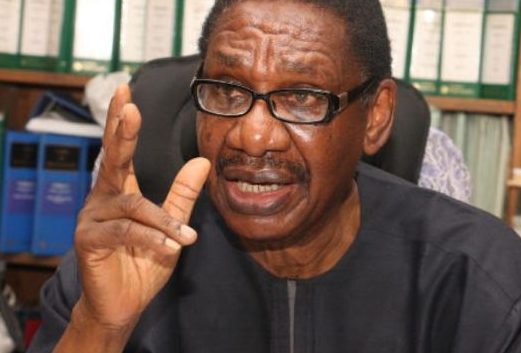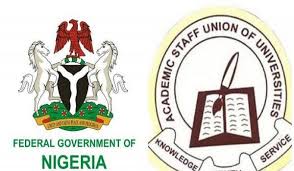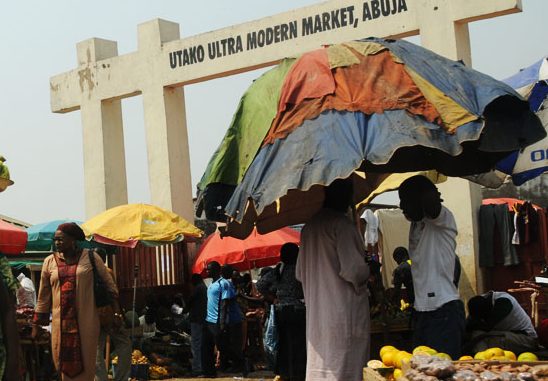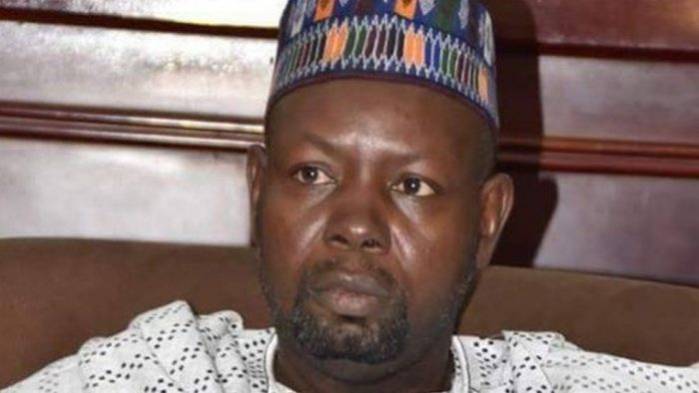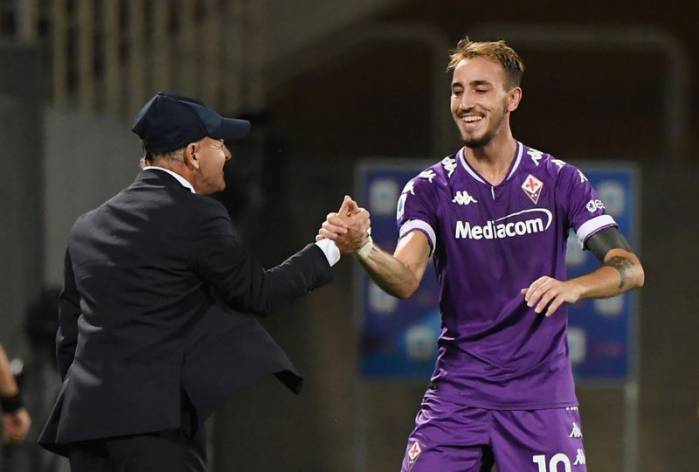The Chairman of the Presidential Advisory Committee Against Corruption (PACAC), Itse Sagay, is one of President Muhammadu Buhari’s most trusted advisers and supporters. But in this concluding part of his interview with our team consisting Editor-in-Chief, VICTORIA IBANGA, Associate Editor, DOMINIK UMOSEN, Correspondent, YUSUF MOHAMMED and Marketing Executive, ASIAN NKUTT, the professor of International Law, pointedly asked Mr. Buhari to free the leader of the Islamic Movement of Nigeria (IMN), Ibrahim El-Zakzky, among other controversial issues he spoke about.
NE: If you recall, in June 2016 you said, the government would create special courts for corruption and cybercrime, how far have they gone?
I have not followed up closely but I know that the two chambers of the National Assembly are acting on it. I understand that it is at the second reading stage. My hope is that before the end of this year, it would have been passed into law.
NE: The opinion among lawyers is that Nigeria currently doesn’t require special courts if the political will is there. Do you agree with that?
No, I don’t agree with that. In fact, we had our greatest level of achievement when the existing court system started to have divisions. Criminal divisions, land divisions, general divisions and so on. That’s when the highest numbers of convictions were achieved because the criminal division now concentrated on crime alone. Not only that, in some cases, they were specially selected. They are judges known for their integrity, then you put them there and limit them to concentrate on crime and corruption. They then have all the precedence to act upon, and you will see that they will be more efficient and will have less work to do because the workload of judges is frightening. When they have less work to do, their expertise will improve and within a short time, we will be getting better results. As I said, although it isn’t said openly, it is the expectation that those who will constitute that court will be specially chosen. Their track record, their background, and character will be checked. Not just anybody.
NE: There are speculations that the Attorney-General of the Federation and Minister of Justice, Abubakar Malami is trying to frustrate the anti-corruption crusade. Do you share this view?
No, I don’t. He cannot work against the government. He won’t be there for one day if he did that because apart from security, that is the most important programme of this government. You may say he is not dynamic enough. Definitely, he is working in tandem with the rest of the agencies. Under his ministry, we now have a national anti-corruption policy, which would be coordinated with various other agencies including our own. That is a major achievement. We now have under his ministry and from contributions from others, including ours – a national prosecution team. We also have the administration of criminal justice monitoring committee. Generally, their job is to monitor the effectiveness of the criminal prosecution all over the country. He has done his own bit. Maybe he isn’t dynamic enough.
NE: Could that lack of dynamism be a function of his relative inexperience?
I don’t want to be a judge of that. I think those of us who are involved should encourage him and cooperate with him and where we find that he is not dynamic enough, we push him. We in the PACAC send a lot of documents to him and some are what his ministry ought to have done. We prepared them and allowed the ministry take the ownership. However, I don’t agree that he isn’t in favour of the anti-corruption war.
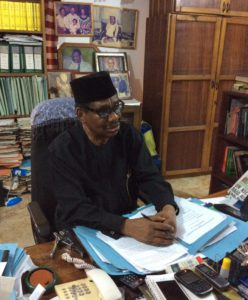
NE: Lately, there have been recommendations that the office of the Attorney- General of the Federation should be separated from that of the ministry of justice. Tell us about that?
The Attorney-General would just deal with crimes, prosecution, all those things that have to do with criminal offences, law courts, enforcement of fundamental rights, all those things he would do. The Minister of Justice would not be involved in that. He would deal with how to strengthen the ministry by a number of lawyers they are going to have, by the training they are going to have, and programmes, which are more administrative. They should split. The attorney-general would be the one doing the legal work of the government. He is the government’s lawyer. The other one is not the government’s lawyer as such but, as the minister of justice, he would be in charge of the promotion of institutions of justice in the country. Those are the main things.
We used to have it until the coup of 1966. There was somebody that used to be called the Director of Criminal Prosecution (DCP). That was his job. He was given the powers of an attorney general. He was independent of the government. Nobody can tell him what to withdraw or where to take over a case from anybody who is handling it. Total independence. We had it up until January 1966. After that, we buried it and started combining the two positions. I want an independent person to be the Attorney-General who would be totally independent and would have his own initiative and cannot be controlled by any government agency.
NE: We would like you to clear the air on the face-off between PACAC and the AGF. There have been reports he is being asked to resign due to his overbearing influence on ICPC and EFCC?
I am not aware of that.
NE: But he has been demanding for case files of former governors and senators?
The PACAC has not reacted to that negatively. But the way we feel, and it isn’t a matter of conflict. We feel that in areas the anti-corruption agencies are already very vibrant, concentrated and focused, they should be left alone. The Attorney-General is the overriding boss. There is no question about that. He has the right to demand those files but at times you use discretion in exercising power. If the anti-corruption agencies are not doing well for example and you want to find out, you can find out. Even if you want to step in, you can step in. But you must be sure they are not doing well so that there will be justification for exercising that power. There is no clash between him and PACAC over that issue. Personally, I feel where the agencies are already dynamic and doing well, like the EFCC, there is no basis for withdrawing cases from them. I don’t even think he wanted to do that. I read a memo from the ministry by Mr. Obla saying they just wanted to acquaint themselves with what was going on.
NE: Recently the presidency withdrew some names sent to the Senate for confirmation as members of the ICPC board. Does that imply proper checks weren’t carried out by the government?
How those two slipped from the net is very strange because those are cases actually being investigated by ICPC. You can imagine having them as members of the board. Even if they are not going to interfere, there is the issue of conflict of interest and it doesn’t give the ICPC a good image. Luckily, people petitioned quickly and when the government confirmed that, the two names were dropped. Nigerians should have integrity. If I am being appointed to such position, I would decline. But in their case, they just kept mum and were ready to assume office in spite of the devastating consequences it would have had on the reputation of the agency.
NE: It seems the government is only concerned with those who stole public funds and won’t consider a situation whereby a security chief for instance, manipulates his position to favour people. No one has been arrested for giving quit notice to Igbos. There is a dysfunctional signal coming from the government. What is corruption in your own perception?
Corruption always involves the abuse of position in office to enrich or empower yourself at the expense of the public or other people. Basically, that is what corruption means. It is the illegitimate activities, which tend towards abusing a position and then acquiring assets, which belong to a state or an individual.
Now the question you raised is strictly not a corruption matter. It is a political matter. I don’t understand why no arrests were made but I have heard some people defend the non-arrest. I have heard people say those Northern youths were responding to something more violent coming from IPOB and so on. I don’t think it is a good excuse because if everyone responds in kind to every provocation, then there will be no peace in the country. They should have made a good example to at least arrest them and caution them. Get them to make a statement and let them go. It is not a good thing. It makes one lose confidence in the capacity of our security agencies to do its works.
NE: There is a picture trending on social media of Nnamdi Kanu inspecting a guard of honour by Biafran secret service. What is your take on that?
I don’t know what is pushing that young man. It is a very serious case of subversion. It is also a breach of national security and a threat to our corporate existence as a country. They left him alone thinking with the freedom he would mellow and operate within the confines of the law. After all, there are several other people calling for restructuring which is quite legitimate. I personally believe in restructuring. That is legitimate. You don’t need to have an independent Biafra. You can have a Biafra or what a territory of Biafra would have been, operating autonomously in Nigeria. I keep repeating that if Igbos break away from Nigeria, they will lose more. It will be a big mistake because they have stakes all over the country. They have properties and businesses all over. If you become a foreigner, you will need a visa, you become an alien and at the slightest disagreements between the two parties, properties can be seized. It doesn’t make sense. I think the best thing is to seek autonomy within the federation.
NE: Do you think initially, the President should have ignored Kanu and called his bluff?
No. The government did the right thing by arresting him in the first place because he appeared to threaten the very existence of the country. I think later they felt that keeping him in was worse than releasing him because he created such fervor and sympathy outside. Let him go and gradually the situation will stabilise. In my view, he is being extremely unreasonable. What he wants for the Biafrans or South-east is not in the best interest of the nation.
READ ALSO: Osinbajo Can Represent Buhari During Presidential Debate – Sagay
NE: That brings us to the question of El-Zakzaky, leader of the Islamic Movement of Nigeria. Is his detention lawful?
I have made a statement on that before and I called on the government to release him.
NE: Did you issue a statement?
No. I said it in an interview that it was wrong. I said that it is either they release him or bring charges against him and let it go through the legal process. To keep him in detention illegally is not right. I am not happy about that.
NE: Our worry is the implication of the action of the federal government on treaties, like ECOWAS treaty that we are a signatory. What does that say about Nigeria? What are the implications?
The ECOWAS treaties are being flouted left, right and center. Not only by Nigeria, also by other countries. It is very unfortunate because it shows that we don’t have a commitment. Once ECOWAS court has given a judgment, it is binding and we must obey. It is a mistake not to do so. But like I have said, from personal experience, I have had one or two cases here, which my clients won at ECOWAS court against Ghana. Ghana just defied it and nothing happened. So it is common. It is not good.
NE: Government is doing everything to settle persons displaced by the insurgency in the Northeast, but doing nothing about Nigerians who were displaced from Bakassi and others who were repatriated from Cameroon. Why is this so?
The Federal Government, Cross River and Akwa Ibom states are not showing enough concern. That is a very unfortunate case. If you really follow the history of those people, they are the real owners of Bakassi. They are the indigenes of that place. Unfortunately, the British Government signed a treaty transferring Bakassi to France. When the French left, that place became technically part of Eastern Cameroon. In fact, originally it was part of Western Cameroon. But Western Cameroon voted to leave Nigeria, so it went away. But we have evidence to show that Bakassi is a Nigerian town. When the British themselves willed away Bakassi to the French, when they first came in, they went to Bakassi to ask chiefs there to sign a treaty of protection.
The Bakassi people said no, we don’t have authority, go to the Obong of Calabar, he is our traditional ruler. If he signs, then we are covered. That shows clearly that Bakassi was a part of Nigerian territory. Now they have been thrown out of their ancestral land, homeless and without territory, without a place to stay. So many of them have been murdered by Cameroonians and everybody is leaving it to private efforts of Madam Bakassi (Florence Ita Giwa) and a few people. It is not fair.
At the end of the day, the federal government is the cause of their plight because our case was not well handled when the matter was brought before the International Court of Justice. First, Cameroon was not a party to the International Court of Justice statutes. So, when they made an application to the ICJ, we should have said no, we don’t accept. But we accepted. That’s how we destroyed ourselves. That’s the mistake we made. When the case was being brought, I was part of the set of initial counsels representing Nigeria. My own mandate was to argue on the right of self-determination of those people because they clearly wanted to be with Nigeria. That’s a very strong legal argument in the international legal system. That was what I was given. At a certain stage, I was just preparing my brief when somebody went and whispered to late Gen. Sani Abacha that Sagay and Ajomo are NADECO people. So we just got a phone call saying don’t show up again and that was the end of it. That aspect which was very critical was no longer argued. I am an international lawyer by training. I have a Ph.D. in International Law. They now brought people with Ph.D. Islamic Law, in Commercial Law, to go argue before the ICJ and naturally we lost.
NE: Let’s revisit the issue of Senate’s confirmation. What if the senators refuse to confirm Professor Owasanye as the new ICPC chairman, will he remain in office as acting ICPC chairman like Mr. Magu?
He would become acting chairman for some time. My own view is even more radical than that of the government. If I were in the position of the Acting President (as at the time of interview), I would not forward his name. I would just appoint him chairman under Section 171. But the Acting President decided to do it. If they reject his name, he will remain acting chairman just like Magu. There is nothing they can do about that.
NE: Don’t you think that would go against the rule of law?
No! The power is there. The constitutional power is there for the president to appoint heads of those agencies. The EFCC law runs contrary to the Constitution and it becomes void automatically.
NE: You talked in the past about restructuring. Please, can you say specifically what you would want the country to do in that area? Are we going back to the regional structure like Chief Anyaoku suggested?
We are going back to the 1963 Constitution, amended to bring it in line with the present reality. In other words, we will not have to have regions because that is more difficult. Ideally, that would have been the best thing. If you ask me how we should restructure, I would say we should have about eight regions. The present six zones but the North-Central zone should be divided into two, East and West. The South-South should be divided into two, old Bendel or Mid-West and the rest of it. That’s what I would have suggested but I am realistic enough to know that those who are already in government, in states or zones are even asking for more states regardless of the fact that most of the present states are not viable. We may retain them but transfer more powers to them for them to keep more of their resources and have more political powers in various areas in which they are presently deprived.
Let me give you a simple example. There is no reason why local government should feature in any federal Constitution because a local government is the creature of the state. The state ought to have the power to create as many local governments as possible without reference to the federal government. But should be compelled to fund them exclusively. As it is now, the federal government is funding local governments so people are fighting to increase local government because that means getting more money from the federation account. Therefore, the federal government is put in a position to reject or to grant creation through the National Assembly. Like the one in Lagos State, it passed through all the stages but when it got to the National Assembly, they put a stop to it and that was the end.
The other thing I wanted to mention is related to the federation account. For me, the presence of a federation account, which compels states to go cap-in-hand every month to beg for money like civil servants on monthly pay is wrong. I think we should abolish the federation accounts. Let states just rely on their own resources. What used to happen is this: First, state resources were divided into three. Whatever you are able to produce, 50 percent belongs to you, 20 percent was sent to the federal government, and 30 percent was in a distributable pool. Then you look at all the states in the country, which are the ones most in need, you now give them the bulk of the 30 percent.
